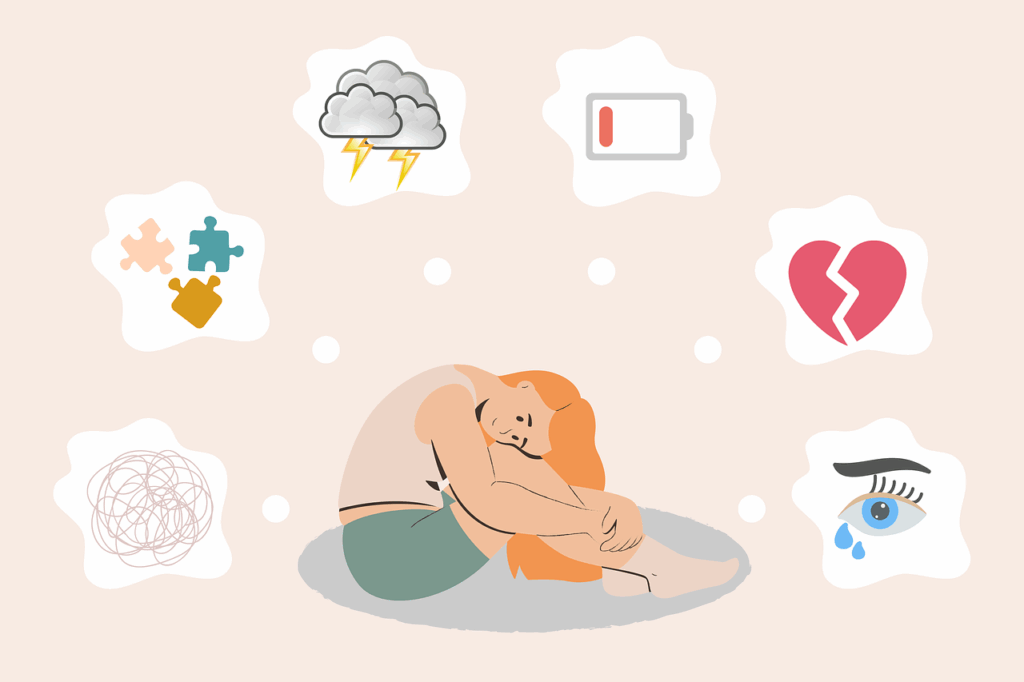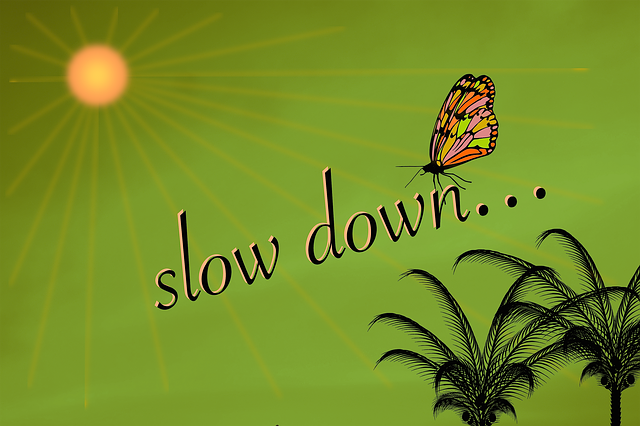You feel like life is too much. Everybody needs something from you, whether it’s at work, within your family, or among your friends. You feel like you can’t possibly do more than you already are, but even that doesn’t seem to be enough. Your calendar is full and despite your efforts to plan and prioritise, you still feel like you’re constantly running behind, always chasing, out of breath. But there doesn’t seem to be a finish line. So, you keep running. Then, at some point, you’re forced to stop. Not because you’ve reached the end, but because you’ve hit a wall. You might feel incompetent, less capable than others, like a failure, or like you never finish what you start. You feel broken. But what if you’re not broken? What if you’re overwhelmed?
What Is Overwhelm, Really?
For those of us who’ve experienced overwhelm, we know this isn’t “just stress”. It’s a full-body experience that can leave us anxious, frozen, scattered or completely shut down. Overwhelm isn’t a personal failure or weakness. It’s a sign that everything is too much, too fast, with no room to breathe. When we feel overwhelmed, our nervous system is doing exactly what it was designed to do. It protects us from a perceived danger. However, that danger isn’t a lion chasing us. It’s multiple open browser tabs, a full calendar, unread messages, juggling family and work and the quiet pressure to keep it all together.
Signs You’re Experiencing Overwhelm
Overwhelm can show up in many ways and it affects us emotionally, mentally and physically. You might notice a lack of motivation, a struggle to focus at work, difficulty concentrating, racing thoughts or a sense of panic when thinking about all of the things you need to be doing in one day. Emotionally, you feel irritable, experience overbearing anxiety, or complete emotional shutdown, or feel numb. You stopped doing your regular exercise in the mornings as it is hard to get out of bed due to feeling exhausted. You notice you are not breathing properly, your back is hurting you and you have stiff shoulders. These are signals from your nervous system that you’re over capacity and in need of support, rest, or relief.
Overwhelm and the Nervous System
The autonomic nervous system is our body’s built-in system, working to keep us alive, safe and balanced. It has two main branches: the sympathetic nervous system, which activates the fight or flight response, and the parasympathetic nervous system, which helps us rest and recover. When we are overwhelmed by juggling too many tasks, intense emotions, or sensory overload, our brain perceives this as a threat. The brain’s alarm system, the amygdala, gives us a message, “This is too much. I can’t handle this”. In response, the stress hormones cortisol and adrenaline are released, preparing us for survival. We either act in a fight mode – feel angry, reactive or irritable, or flight mode – we feel panicked, procrastinate, or want to escape. If neither feels possible, our nervous system may shift to shut down, which is a freeze response, linked to the dorsal vagal branch of the parasympathetic system. This can feel like numbness, exhaustion, or emotional flatness.
The Cycle of Overwhelm
Many of us unknowingly go through a cycle, shifting from high-functioning stress into shutdown and then blame ourselves for it. Does this sound familiar? Life feels like a lot, too many things to accomplish, not enough time, or too many demands coming at you all at once. You think, “How am I going to manage this?”. So you start planning, making endless to-do lists, so you can then cross things out. You research the best solutions to every problem and you are proactive, trying to stay on top of it all. You stay busy, hyper-focused. You skip rest because resting feels like wasting time. You skip meals or turn to comfort food, telling yourself, “I deserve to treat myself, I’m doing so much”. You might even feel proud of how productive you’re being, how much you’re accomplishing. Over time, your system becomes overloaded. You notice that you feel exhausted. It’s harder to get up in the morning. You feel impatient, irritable and easily triggered by others. You notice you’re no longer able to execute the plans you made. The voice of guilt whispers, “Why can’t I just keep it together?”. So you push yourself and start the cycle all over again.
How Can Somatic Experiencing® Help?
Somatic Experiencing® is a gentle, body-based approach to healing that helps regulate the nervous system and ease feelings of overwhelm. By focusing on physical sensations rather than retelling difficult stories, it supports the body in releasing stored stress and restoring a sense of safety and calm. This kind of healing isn’t about doing more. It’s about doing less, with intention and learning to listen to the deep wisdom your body already holds.
Orient Yourself to Safety – look around slowly, up and down and notice what you see, hear, or feel.
Ground Through Your Body – press your feet firmly into the floor and feel your body supported by the chair. Gently bring your attention to your breath – steady, natural and present.
Use an External Resource – picture your favourite place or soothing memory. Let your body feel the comfort it brings. Your nervous system responds to imagined experiences just like real ones.
Track Your Body Sensations – you are your own observer. Notice your body sensations, without judgment.
Pendulate – if you feel tension, gently shift your focus between the discomfort and a more comfortable part of your body to help your nervous system balance.
What if you could learn to meet overwhelm differently? What if you could feel more centred and grounded in life’s tornado, even when life feels like too much? Taking that first step takes courage and curiosity. You don’t have to do it alone. You deserve support that honours your mind, body and nervous system.



